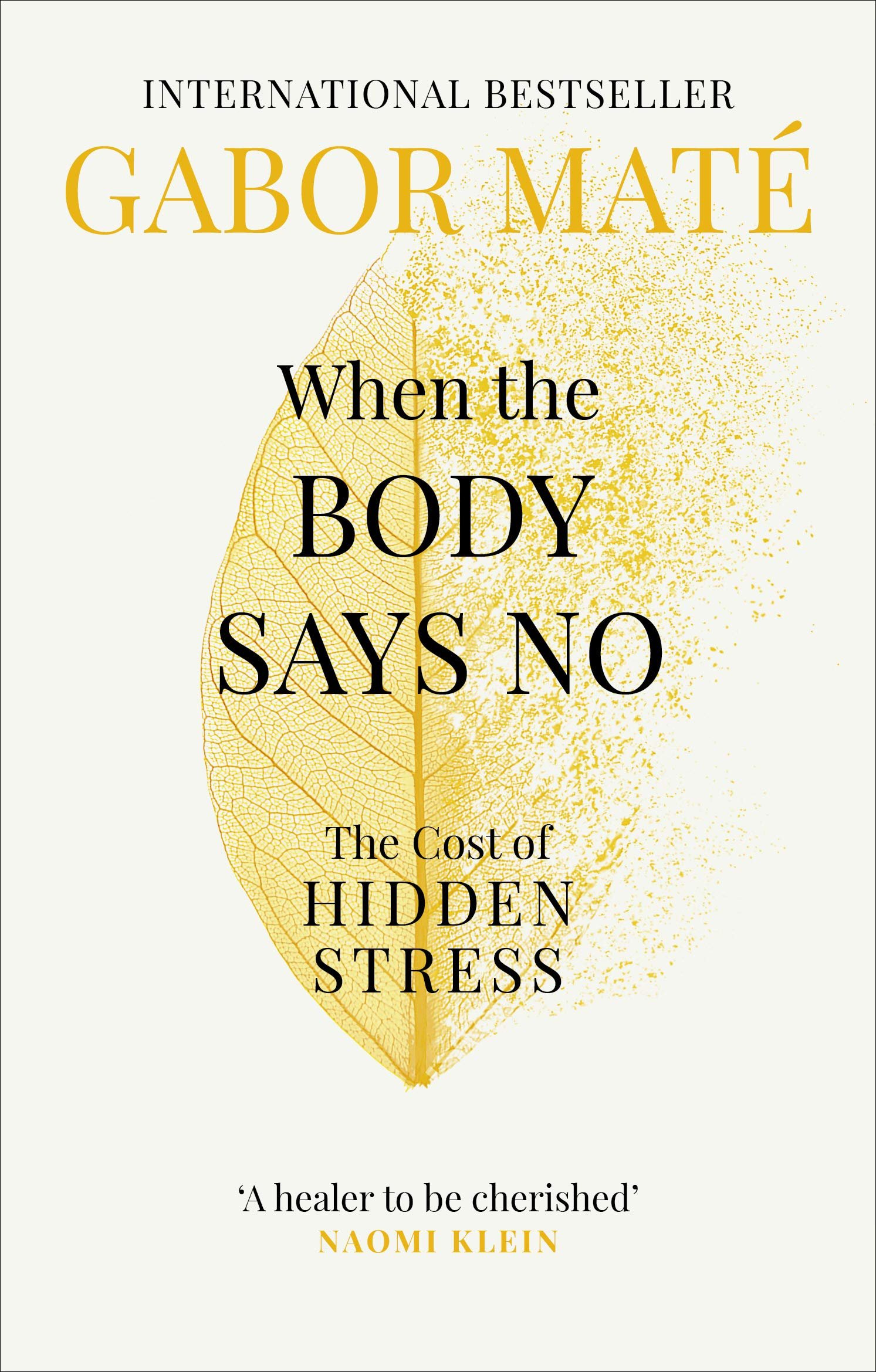When the Body Says No by Gabor Maté
★★★★☆
This April, which is Stress Awareness Month, we read When the Body Says No and it’s safe to say it was a fitting choice. In the book, Gabor Maté draws on his years of experience working as a GP in Canada and the many patients he’s seen, alongside a body of evidence from countless studies in the field of Psychoneuroimmunology (PNI for short) which back up the anecdotal stories he shares. In very basic terms, PNI is the idea that your psychological state and your immune system are not separate and unrelated, instead the former has a significant impact on the latter. As someone who seems to live in a constant state of stress, emotional upset, and anxiety, my increasing reaction as I got through each chapter was ‘I am so screwed’.
Maté dedicates most of the chapters to a particular long-term illness, beginning by introducing some of his patients and the chronic diseases they’ve been diagnosed with. He then goes on to describe the life histories of these patients in depth – their childhoods, traumas, bereavements, relationships, and emotional states – which he has learned through extensive interviews with them. What Maté suggests is that many of these patients have had deeply distressing life experiences and are carrying trauma with them. These painful experiences subsequently suppress their immune systems, leaving their bodies less able to mount a defence against diseases like cancer, multiple sclerosis, rheumatoid arthritis, and Alzheimer’s. Whilst it didn’t take much convince me of this, having already seen how much more I get sick I when I’m stressed; for the more sceptical among us, Maté cites plenty of research that supports his argument, making it difficult to deny that he and other researchers in the PNI field must be onto something
The book got a little bit science-y at times, so occasionally I would have to read a page twice to digest exactly what he was saying. However, for the most part he keeps the medical jargon to a minimum and makes the book as accessible as possible for your average non-medically trained person.
You might think the book sounds incredibly bleak, and at times it was a little depressing to think the trauma and emotional wounds you never asked for are eventually going to catch up with you and send you to an early grave, but Maté does weave snippets of hope throughout the chapters. Stories of people diagnosed with diseases who after diagnosis, turn their lives around and stop suppressing their needs or anger, and begin to do better – the cancer shrinks, or the symptoms of MS ease. Another thing Maté is careful to do is not to place blame on anyone for illness – not the people suffering from these diseases nor the people in their lives – the emphasis is placed on understanding the causes and the path to healing.
Maté ties up the book with a call to action, which he call ‘The Seven As of Healing,’ explaining how we can honour our emotions, put our needs first, set boundaries, and begin to heal those emotional wounds in order to be healthier in both mind and body. I found this final chapter offered me some hope that if I take my emotional wellbeing seriously, maybe I’m not so screwed after all.
Review by Cally


